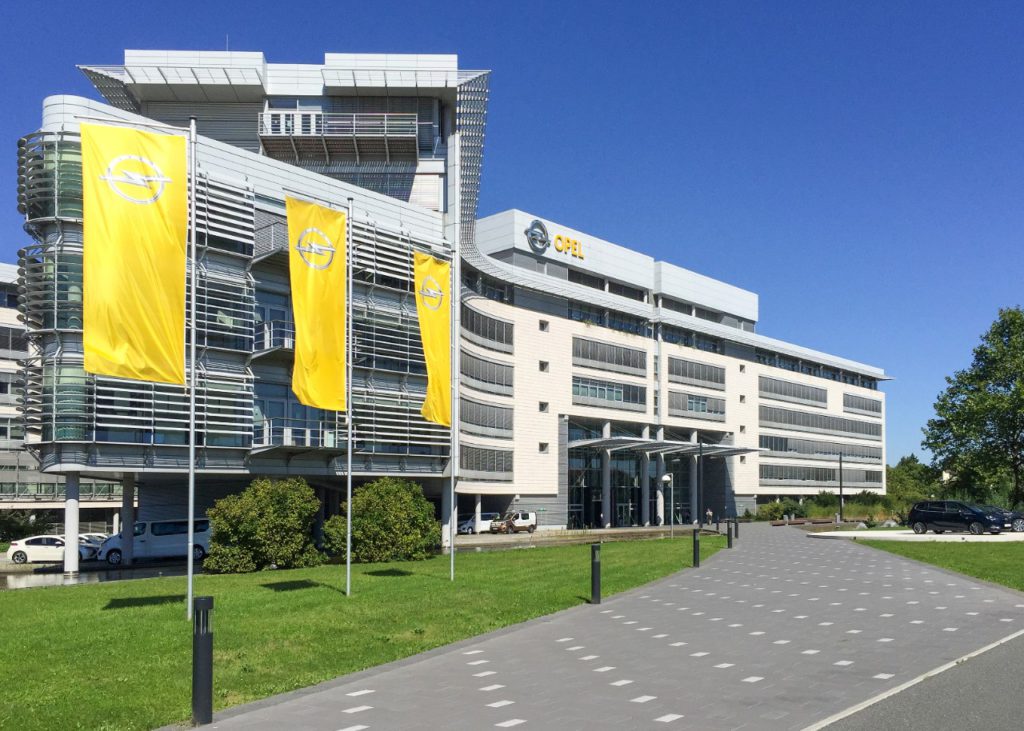Earlier than expected Opel sale to PSA could be complete by end of July
09 June 2017

09 June 2017
Opel has confirmed that General Motors (GM) could complete the sale of its European operations to PSA Group (Peugeot Citroën) as early as 31 July. The early date has been realised following GM resolving a key confrontation with unions after it formally agreed to protect factory jobs, signing binding contracts last week.
Opel said: ′We confirm that the closing is expected to take place in the second half of 2017 as planned, and that the date of 31 July constitutes a first assumption for the earliest possible date, subject to the decision of the competition authorities.’
When PSA in March agreed to buy Opel and British arm Vauxhall from GM for €2.2 billion, the companies said the transaction would be completed by the end of the year. PSA CEO Carlos Tavares is looking to find €1.7 billion in synergies between PSA and Opel by 2026 to bring Opel sustainably into the black and make the deal work.
To sell its European operations, GM has created the new company Opel Automobile GmbH, which will be sold to PSA. The union deal involved GM signing agreements giving workers co-determination rights, and GM guaranteeing that it has set aside enough provisions to fund Opel’s large pension deficit, a union source told Reuters.
The union deal means GM’s projects it planned to execute as part of its strategic plans for Opel prior to the sale to PSA are now guaranteed for a period of three years, guaranteeing jobs and plants in the short term.
Nevertheless, with billions needed to be saved for Tavares to make the deal work, including problems with plants running severely under capacity at both Opel and PSA, Tavares has his work cut out to minimise job and plant closures and the disruption this entails.
One plant that continues to look particularly vulnerable is Vauxhall’s Luton plant near London, which produced just one model last year, the midsize Vivaro van, which is a repurposed Renault Trafic. The model is expected to be renewed around 2025, beyond GM’s three-year guarantee, and PSA may choose then to move the model to join its Expert and Jumpy vans on a PSA platform, with production moving to PSA’s Sevelnord plant in northern France.
This plant is currently running at less than half its 200,000-unit annual capacity, which would give PSA an opportunity to centralise all the Group’s vans on a shared development platform.
This would be a logical step, but would leave Luton’s future in the balance. However, with Britain’s forthcoming exit from the European Union (which is, in theory, still happening in March 2019 plus a transitional period despite yesterday’s election result), this facility may be an important asset for PSA to allow it to mitigate any import tariffs and economic effects if the UK leaves the single market, and PSA could repurpose the plant as a multi-vehicle assembly facility.
The light vehicle market is in fact a key area Tavares could use to boost plant capacity. It is a growing market which analysts believe has profit margins around 9%, in line with those of SUVs (and two-three times better than margins for passenger cars).
Light commercial vehicle output in Europe is a complicated array of joint venture, development alliances and supply agreements, which Tavares would need to modify to find savings, which analysts are confident can be achieved. PSA has alliances with Opel, Renault and FCA (Fiat Chrysler). If product cycles align, modifying or exiting these existing agreements could help fill unused production capacity gaps at PSA and Opel plants by more than 150,000 units, by bringing more production in-house.
To this end, Tavares’ ′Push to Pass’ strategic plan aims to boost PSA’s LCV (light commercial vehicle) sector presence, as it introduces eight new vehicles by 2021, including forming a new unit dedicated to LCVs.
It expects the LCV business to triple sales outside Europe by 2021 and double global profits. Some of this growth and profit could come from Europe, with the market having recently regained post-recession strength. A key driver of this is high demand for e-commerce including internet package orders, with vans a key part of this expanding network to deliver ′last mile’ delivery. BMI Research forecasts LCV sales will rise by 3.6% on average over the next five years.
Photograph courtesy of Opel
The insight behind the news
Never miss another story – sign up to receive your complimentary Autovista Group Daily Brief. This timely and incisive daily briefing covering automotive news and insights on the issues affecting your business is delivered direct to your inbox.